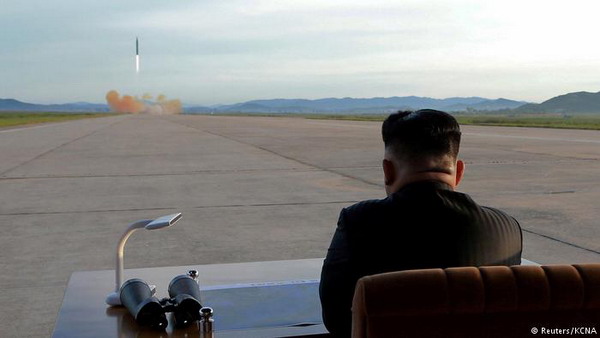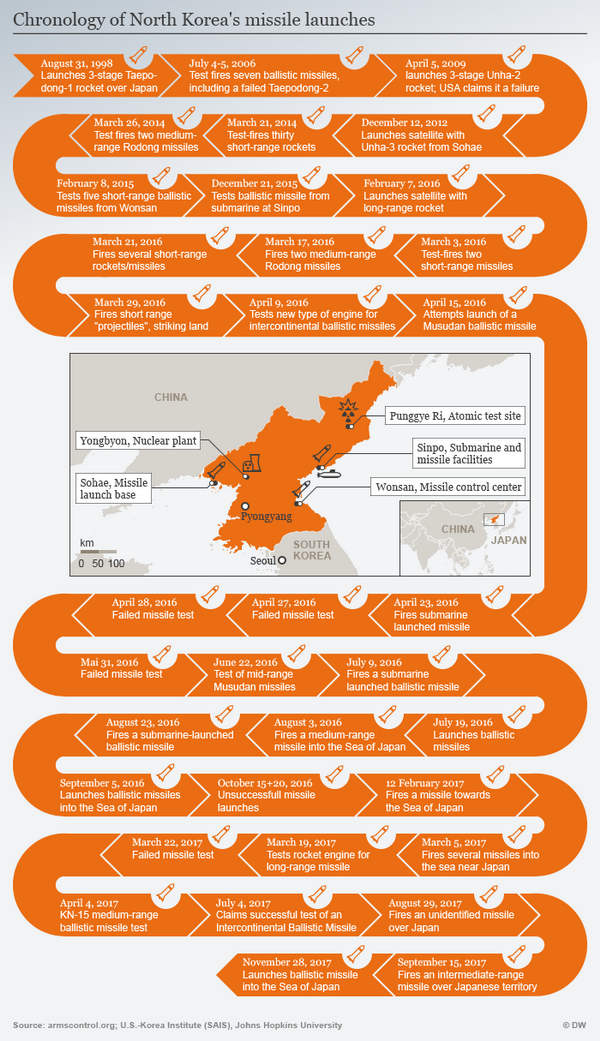The United Nations Security Council unanimously voted on Friday to impose new sanctions on North Korea aimed at cutting off oil supplies and preventing revenue from foreign workers from reaching Pyongyang.
The latest sanctions, which analysts believe could have a significant economic toll, were in response to the country’s most recent intercontinental ballistic missile (ICBM) test.
The US-drafted resolution limits imported crude oil supplies to four million barrels per year and caps refined petroleum products, including kerosene and diesel, to North Korea at 500,000 barrels. The previous petroleum product limit had been set at 2 million per year.
All countries were also authorized to seize, inspect, freeze and impound ships thought to be carrying illegal supplies to and from North Korea.
The sanctions demand the repatriation of North Koreans working abroad within 24 months. Tens of thousands of North Korean nationals have been sent to Russia and China to work in what the UN has called “slave-like conditions” in order to make money for the regime of Kim Jong Un.
In addition, a total of 16 North Korea officials, mostly in the banking sector, were added to the sanctions blacklist along with the country’s ministry that manages the logistics of its armed forces.
All 15 members of the council, including China and Russia, backed the sanctions. The United States has long called on China to cut off its supply of oil to Pyongyang.
The approved resolution did not include additional tough measures sought by the US such as the blacklisting of ships from other nations carrying banned cargo to North Korea or freezing the international assets of the Pyongyang government.
Hard on North Korea’s economy
Analysts have said that the new round of sanctions, the third this year and the 10th in the past 11 years, could have potentially crippling effects on Pyongyang’s economy.
“If they were enforced, the cap on oil would be devastating for North Korea’s haulage industry, for North Koreans who use generators at home or for productive activities, and for [state-owned enterprises] that do the same,” Peter Ward, a columnist for NK News that tracks North Korea, said while speaking to the council before Friday’s vote.
Michael Kirby, who led a UN human rights inquiry in North Korea, added that turning off the tap for oil imports would be “a very serious step.”
“Cutting off oil, petroleum supplies, would obviously have a very big impact on the ordinary population,” he said. North Korea is thought to have considerable oil reserves in its territory, but much of it in very deep waters, making extraction problematic. Funding shortages also pose a constant problem in Pyongyang, which struggles even to keep electricity supply constant in the capital city.
Sanctions follow ‘breakthrough’ missile test
The last sanctions against North Korea were adopted in September, leading North Korea to call for an end to the “brutal” measures that it termed genocide.
The US sanctions approved on Friday came in the aftermath of North Korea’s announcement at the end of November that it had undertaken a successful “breakthrough” test of an ICBM that could reach the western coast of the United States.
Washington and Pyongyang have traded heated rhetoric over Kim Jong Un’s nuclear ambitions. The same day as the sanctions vote, a North Korea official in the foreign ministry said that US President Donald Trump was trying to turn the Pacific nation “into an outpost of American hegemony” as part of “total subordination of the whole world.”
The Trump administration, meanwhile, has said it remains committed to a diplomatic solution to the escalating tension with North Korea, but that all options would be considered.
Photo – DW





















































